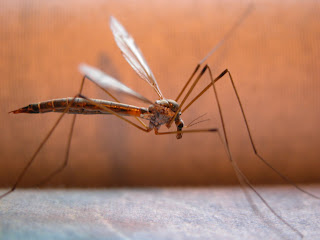 Μεγάλες διαστάσεις, αφού παρενέβη και ο Παγκόσμιος Οργανισμός Υγείας, λαμβάνει ο θανατηφόρος κοροναϊός MERS, εν μέσω μάλιστα Ραμαζανιού στη Σαουδική Αραβία. Τρεις μόλις ημέρες μετά την έναρξη του φετινού Ραμαζανιού για τους μουσουλμάνους, η Σαουδική Αραβία ζητά από τους πιστούς να φορούν μάσκες στους χώρους που συνωστίζονται προσκυνητές, προκειμένου να εμποδιστεί η εξάπλωσή του.
Μεγάλες διαστάσεις, αφού παρενέβη και ο Παγκόσμιος Οργανισμός Υγείας, λαμβάνει ο θανατηφόρος κοροναϊός MERS, εν μέσω μάλιστα Ραμαζανιού στη Σαουδική Αραβία. Τρεις μόλις ημέρες μετά την έναρξη του φετινού Ραμαζανιού για τους μουσουλμάνους, η Σαουδική Αραβία ζητά από τους πιστούς να φορούν μάσκες στους χώρους που συνωστίζονται προσκυνητές, προκειμένου να εμποδιστεί η εξάπλωσή του. Επιπλέον, το υπουργείο Υγείας της χώρας ανακοίνωσε ότι φέτος δεν θα δοθούν θεωρήσεις visa σε ηλικιωμένους και χρόνια πάσχοντες προσκυνητές. Aπό τους 44 θανάτους που έχει προκαλέσει μέχρι σήμερα ο ιός, κυρίως σε χώρες της Μέσης Ανατολής, οι 38 καταγράφηκαν στη Σαουδική Αραβία.
Ο ιός MERS (Αναπνευστικό Σύνδρομο Μέσης Ανατολής) εμφανίστηκε στην Αραβική Χερσόνησο τον περασμένο Σεπτέμβριο και μέχρι σήμερα έχει προκαλέσει 80 επιβεβαιωμένα κρούσματα βαριάς πνευμονικής λοίμωξης. Ανήκει στην οικογένεια των κοροναϊών, η οποία περιλαμβάνει ιούς του κοινού κρυολογήματος αλλά και τον θανατηφόρο ιό του SARS, ο οποίος εμφανίστηκε το 2003 στην Ασία.
Ένα κατατοπιστικό ρεπορτάζ ακολουθεί:
“Saudi Arabia, has been detected as being infected with the deadly MERS virus (Middle Eastern respiratory syndrome) caused by a coronavirus, a relative of the virus that caused SARS (severe acute respiratory syndrome). The World Health Organisation has raised an alert. The virus is said to have been picked from bats. Saudi Arabia is still reeling from the aftermaths of the war and much of the country is desolate. Houses are abandoned and are becoming breeding grounds of infectious bats that are said to have been spreading the virus in some way to humans. There have been quite a few cases that have been identified amongst humans with MERS and the number is gradually increasing. Scientists fear that MERS may affect a larger population. The diseases have high elements of being contagious. The origin of the disease is yet unknown but it most possibly has come from bats that have been tested for the disease. Saudi Arabia has had 40 reported cases. The World Health Organization has so far confirmed of a total of 80 cases of infection, including 44 deaths worldwide. Cases have also originated in Jordan, Qatar and the United Arab Emirates. Travelers from the Arabian Peninsula have taken the disease to Britain, France, Italy and Tunisia, and have infected a few people in those countries. Health experts are also worried about the Hajj, the Muslim pilgrimage that will draw millions of visitors to Saudi Arabia in October. The illness can be spread by coughs and sneezes, or contaminated surfaces, and people with chronic diseases such as diabetes seem especially vulnerable. However, Dr. Thomas Frieden, the director of the C.D.C. has said that the MERS is not highly contagious like the flu but he also added that the likelihood of spread is not small. Health officials in Saudi Arabia have asked pilgrims visiting its holy sites to wear masks in crowded places to stop the spread of the MERS coronavirus. Pilgrims visiting the Mecca in Saudi Arabia pray together before the Kaaba should use a tissue when sneezing and coughing, and have the necessary vaccinations. Also great tourist destinations are situated in the UAE and one can only hope that the disease may fizzle off like SARS and may not cause any permanent damage to humans”.



